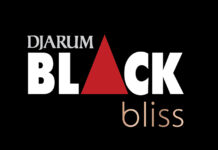Big Tobacco has long been accused of singling out minorities, leading to federal laws that ban tobacco companies from advertising on television and radio. Tobacco signage in convenience stores within neighborhoods dominated by minorities has also been called out and targeted by local governments, leaving tobacco companies with fewer outlets to advertise and market. Social media platforms such as Facebook and Twitter prohibited any advertising from tobacco and other combustible products, leaving few options for those companies operating within that space. According to Knutzen, however, music videos are now being used by tobacco and cannabis companies to target minorities, especially teenagers.
Knutzen says her research can be used to help the U.S. Food and Drug Administration’s recent claims that the e-cigarette industry is illegally marketing its products to youth. With the ability for a seemingly harmless music video to reach millions of individuals–including youth–through social media and platforms like YouTube, Knutzen believes more regulation on how covered tobacco and cannabis products are advertised in today’s world is necessary.
Vaping and smoking in music videos are considered to be creative expressions that are protected by the First Amendment. The question, however, is if these products are indeed paid product placements and if so, they would have to display a surgeon’s general warning statement about the risks associated with tobacco use.
To read more of Knutzen’s research findings, click here.







